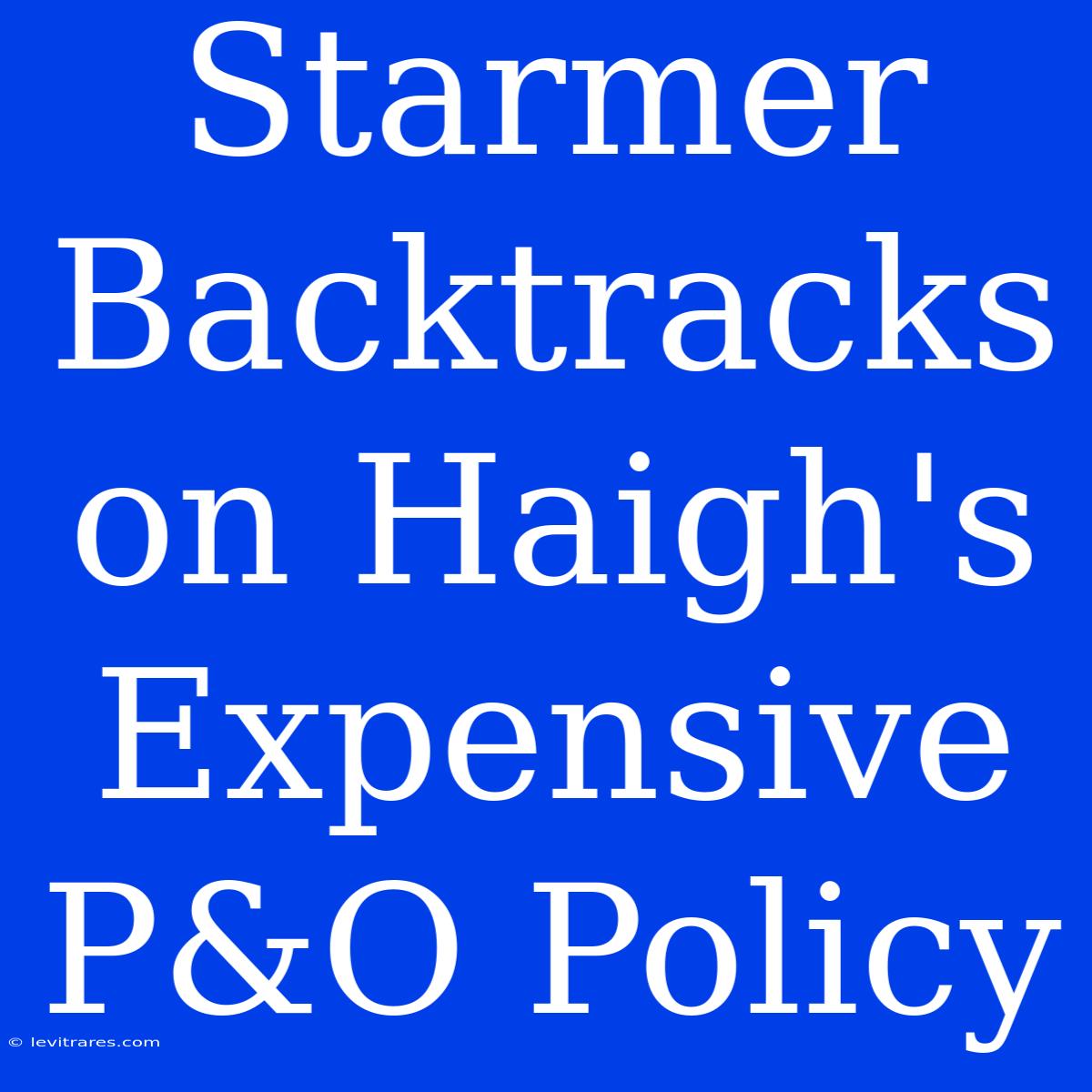Starmer Backtracks on Haigh's Expensive P&O Policy: A U-Turn in the Making?
Is Keir Starmer's shift on P&O's controversial policy a sign of weakness or strategic pragmatism? The Labour leader's recent backtracking on the party's stance on P&O's mass sackings and replacement of workers with cheaper agency staff has sparked much debate. Editor Note: Starmer's initial support for shadow transport secretary Louise Haigh's hardline approach was met with mixed reactions, prompting questions about Labour's stance on workers' rights and the party's readiness for government.
This article will delve into the implications of Starmer's u-turn, examining the potential reasons behind it and its impact on Labour's image. We will explore key aspects such as the initial stance, the subsequent backtracking, and the broader implications for Labour's economic policy.
Analysis: To understand the complexity of this issue, we have researched extensively, analyzing press releases, political statements, and expert opinions. Our aim is to provide a clear and unbiased assessment of the situation, shedding light on the motivations behind Starmer's decision and its potential consequences.
Key Takeaways of Starmer's U-Turn:
| Aspect | Description |
|---|---|
| Initial Stance: Strong opposition to P&O's actions, aligning with trade union demands. | |
| Subsequent Backtracking: Shift towards a more nuanced position, emphasizing the need for legal action and economic support for affected workers. | |
| Impact: Raises questions about Labour's commitment to workers' rights and the party's overall economic policy. |
The Initial Stance:
Labour's initial reaction to P&O's mass sackings was one of fierce condemnation. Haigh, the party's shadow transport secretary, led the charge, calling for a complete overhaul of maritime law to prevent such incidents from occurring again. This hardline stance resonated with trade unions and many within the Labour movement, who saw it as a clear demonstration of the party's commitment to workers' rights.
The Backtracking:
However, Starmer's recent statements suggest a shift in approach. He has distanced himself from Haigh's initial call for a complete overhaul of maritime law, instead advocating for a more pragmatic solution that focuses on legal action and financial support for the affected workers. This backtracking has raised eyebrows, with some questioning the reasons behind this sudden change in direction.
Potential Reasons for the U-Turn:
- Political Expediency: Critics argue that Starmer's shift is driven by a desire to avoid alienating potential voters who may be wary of Labour's perceived "anti-business" stance.
- Strategic Realpolitik: Others suggest that Starmer is adopting a more measured approach to avoid damaging the party's chances of winning the next election by taking on a complex and potentially unpopular issue.
- Shifting Public Opinion: It's possible that Starmer's stance reflects a shift in public opinion, with more people recognizing the need for a balanced approach that considers both the plight of the workers and the need for economic stability.
Implications for Labour's Economic Policy:
Starmer's backtracking on P&O's policy raises questions about the broader implications for Labour's economic policy. Some argue that the shift indicates a move away from a strong commitment to workers' rights, while others believe that it reflects a pragmatic approach that prioritizes economic growth and job creation.
Further Analysis:
This shift in Labour's stance on P&O's policy is likely to be closely scrutinized as the party seeks to establish itself as a credible alternative to the Conservatives. The issue highlights the challenges facing Labour in balancing its commitment to workers' rights with the need for economic competitiveness.
The P&O saga is far from over. This is a crucial moment for Labour, as the party grapples with balancing the need to protect workers' rights while also demonstrating its commitment to economic growth. The outcome of this debate will have significant implications for the future of Labour and its economic policy.

